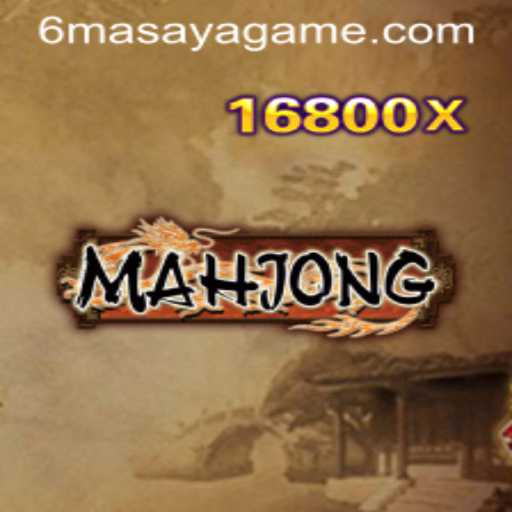
Why Choose Sport in masayagame
- ⚽
Full Coverage
Follow a wide variety of sports, including football, basketball, and more.
- 📊
Detailed Statistics
Access comprehensive data to help you make informed decisions.
- 🎁
Special Promotions
Earn exclusive bonuses and participate in end-of-year offers.
The Intricacies of Jueteng and Its Relationship with Masayagame
- 🏆
Soccer
Watch live matches and enjoy the best betting options.
- 🏀
Basketball
Dive into the on-court action with exclusive stats and analysis.
- 🎾
Tennis
Bet on international tournaments with competitive odds.
Unlocking the Mysteries of TotemWonders: An In-Depth Look into the Game
Discover the captivating world of TotemWonders, a unique game by MasayaGame that combines strategy, adventure, and storytelling. Explore its rules, gameplay, and current relevance.
- 📖
Study team statistics and performance before betting.
- 🕒
Gamble responsibly and set clear limits.
- 💡
Take advantage of seasonal promotions to maximize your earnings.

Jueteng

Understanding Jueteng: A Phenomenon in the Philippines
Jueteng is an illegal numbers game deeply rooted in Filipino culture, tracing back to Spanish colonial times. Despite government's rigorous efforts to eradicate it, Jueteng remains popular due to its integration into local communities and potential for quick cash rewards.
Historical Background of Jueteng
The game originated from China and was introduced to the Philippines by Chinese immigrants. The name Jueteng comes from the Chinese words "hoat" (flower) and "eng" (suit), hinting at its original format which used cards instead of numbers. Over the years, it evolved into a numbers game where players bet on two-number combinations for a chance to win cash prizes.
During the Spanish colonial period, Jueteng gained traction as it provided a financial diversion. The game became more structured during the American period, with syndicates emerging to control operations. Despite legislation to ban Jueteng, it thrived underground, supported by collusion between small-time bettors, financers, and occasionally, local authorities.
The Mechanics of Jueteng
Jueteng involves selecting two numbers between 1 and 37. Bets are placed through a network of cobradores (collectors) who relay numbers to the kabo (head operator). The winning combination is supposedly drawn randomly, though accusations of game rigging are rampant. Due to its simplicity and low cost of entry, Jueteng appeals widely to Filipinos from various socioeconomic backgrounds.
The Social and Economic Impacts of Jueteng
For many Filipinos, Jueteng is more than just a game; it is part of the social fabric. It offers hope to bettors seeking to improve their financial status and serves as an informal economic system within communities. Cobradores and kabos often live in the same neighborhoods as bettors, creating a sense of trust and shared destiny.
However, Jueteng is not without its negative consequences. It encourages a culture of gambling that can lead to addiction and financial ruin. The illegal nature of Jueteng means that profits mostly benefit corrupt officials and organized crime groups rather than contributing to public funds. Consequently, it perpetuates cycles of poverty and corruption, hindering legitimate economic development.
The Legal Battle Against Jueteng
Successive Philippine governments have launched numerous crackdowns on Jueteng, yet their efforts often fall short. The game's deep-rooted presence and the socioeconomic conditions that fuel its appeal make eradication challenging. Some administrations have attempted to combat Jueteng by offering legal alternatives, such as the Philippine Charity Sweepstakes Office's (PCSO) Small Town Lottery (STL), which aims to divert bettors to legal betting operations.
Despite these measures, Jueteng’s allure persists. Many critics argue that until root causes such as poverty and weak law enforcement are addressed, Jueteng will continue to thrive.
Masayagame: A Modern Twist on Traditional Numbers Games
In recent years, technology and innovation have introduced new forms of entertainment that echo the simplicity and excitement of Jueteng. One such innovation is Masayagame, a digital platform that offers a similar betting experience but within a regulated framework.
The Emergence of Masayagame
Masayagame is designed to provide a safe and legal alternative to traditional gambling. By operating online and under strict regulations, it aims to ensure fair play and transparency, potentially attracting Jueteng enthusiasts who seek a legitimate way to enjoy numbers games. The platform incorporates secure payment systems and random number generators to maintain credibility and instill trust among users.
Comparing Masayagame and Jueteng
While Masayagame and Jueteng share similarities in gameplay, they differ significantly in operations and implications. Masayagame operates under legal oversight, contributing to state revenues and offering consumer protections, contrasting with Jueteng's clandestine and corrupt nature. The evolution from Jueteng to digital platforms like Masayagame reflects changing consumer preferences and the impact of technology on traditional practices.
The Future of Numbers Games in the Philippines
As digital innovations continue to reshape the gambling landscape, platforms like Masayagame could significantly impact traditional games' popularity. Encouraging the transition from illegal to legal betting avenues can potentially reduce corruption and support community development through regulated tax contributions.
For the government and stakeholders, the challenge lies in ensuring fair regulation, promoting safe gambling practices, and addressing the socioeconomic issues that propel illegal gambling activities. By addressing these challenges, Masayagame and similar platforms have the potential to reshape numbers games, offering safe and beneficial entertainment choices for Filipinos.
Company News
-

Dive into the captivating world of RuedaDeChileBonusBuy, a thrilling new game that combines interactive elements with current gaming trends. Understand its rules, features, and what sets it apart in the gaming industry.
-

Explore the fascinating world of Mahjong, its rich history, gameplay, and recent trends.
-

Explore the mechanics, rules, and immersive experience of 3CoinTreasures2, a thrilling adventure in the world of gaming.
-

Discover TheBeltOfChampion, the newest game from Masaya, featuring strategic gameplay and immersive experiences. Explore its intriguing world, engaging rules, and how current events have shaped its virtual universe.
-

Explore the exhilarating world of JumpHighermobile, a dynamic mobile game that has captivated gamers worldwide, brought to you by the creative minds at Masayagame.
-

Dive into the captivating universe of PlushieFrenzy, a game that blends fun, strategy, and creativity. Discover its rules, features, and the current buzz surrounding this whimsical adventure.
-

Explore the unique realm of FortuneHook, a captivating game developed by Masayagame that challenges players with its innovative mechanics and intriguing storyline.
-

Dive into the captivating and dynamic universe of RicoDJ, a groundbreaking game that blends strategy, creativity, and skill, all under the intriguing theme of MasayaGame.


